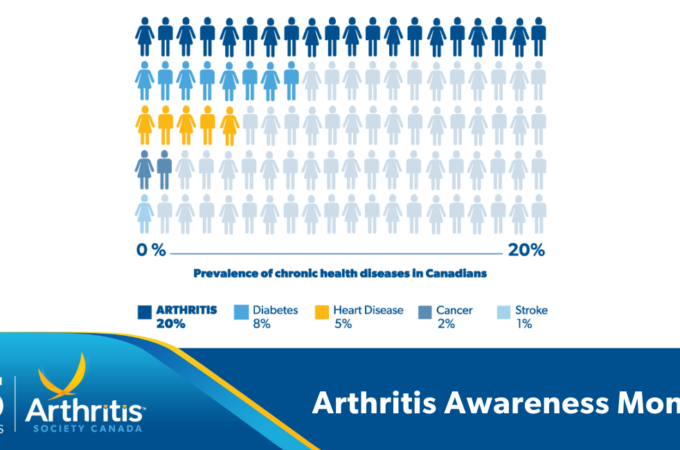Arthritis is not part of the normal ageing process and can steal one’s mobility, independence, and freedom to enjoy life without chronic pain. It is also Canada’s leading cause of disability and workplace limitations. Since September is Arthritis Awareness Month in Canada, I thought readers would be interested in learning the facts about arthritis in our country and what estate planners need to consider.
Estate Planners Need to Look Beyond Dementia
In the estate planning environment, care planning is often focused on dementia care and the various challenges presented with cognitive decline and diminished capacity. Equally important are comorbidities or co-existing diseases such as arthritis that compound its impacts. This leads to even poorer health outcomes, more complicated medical and clinical management, and increased care costs. Understanding a client’s complete diagnostic and functional picture is key to determining an effective care plan.
Here are the facts that estate planners need to know.
- As the leading cause of disability, arthritis costs the Canadian economy an astonishing $33 billion every year in lost productivity and treatment costs.
- Over 4.6 million Canadians (or 1 in 6) aged 15 years and older report having arthritis and by 2031, that number is predicted to rise to 7 million.
- Arthritis is not a normal part of the ageing process, in fact more than 44% of people with arthritis are under the age of 65.
- There are more than 100 different types of arthritis and there is no known cure.
- Many people will be familiar with osteoarthritis (OA) which is a degenerative disease of the joints.
- Osteoarthritis accounts for a shocking number of orthopaedic surgeries – more than 80% of hip replacement surgery and 90% of knee replacement surgery in Canada. [1]
Arthritis is a Covert Tyrant like Mental Health
In a recent blog series from the Mental Health Commission of Canada, the President of the Arthritis Society of Canada lays out the challenges of the disease and shares her perspective of someone who lives with arthritis. The blog draws parallels between mental health and arthritis as the “covert tyrants” where illness and disability may not be obvious, but people are often “left to manage with imperfect diagnostics, limited treatments, and scarce resources”. [2] The lesson to estate planners is obvious. Consider arthritis in care planning.
Arthritis and Financial Planning
That said, arthritis significantly impacts a person’s well-being and can contribute to various planning challenges, including financial. The Arthritis Society of Canada website has an excellent resource called The Financial Wellness Guide. The guide includes Canada-wide and provincial, territorial, and regional resources for funding and benefits for persons with disabilities, tax credits, funding for First Nations and Inuit, employment, job training and skills upgrading, and funding for assistive devices and medical equipment.[3]
In summary, as planners, we must consider the very real chronic disease factors in Canadian lives. The first step is to educate ourselves and our clients on the realities of living with arthritis and its impact on care management. Only then can we focus on personalized care planning and how to pay for it.
[1] https://www.arthritis.ca/AS/media/pdf/Get%20Involved/Organize%20an%20Event/Arthritis-Facts-and-Figures-EN.pdf
[2] https://mentalhealthcommission.ca/blog-posts/72740-mhcc-and-series-arthritis-society/
[3] https://arthritis.ca/support-education/navigating-through-arthritis/your-finances-and-arthritis/financial-wellness-guide


0 Comments